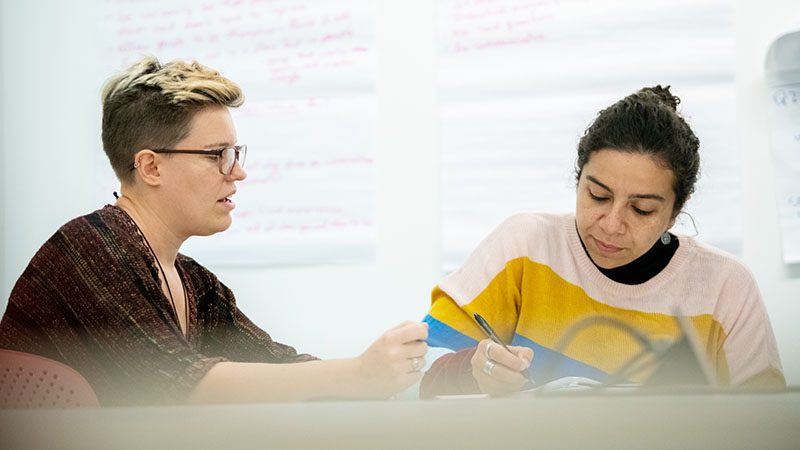Testimonials from Participants
"Our conversations have been motivating and intellectually engaging. The mentorship helped me identify a few places and opportunities I could apply to and gave me a clearer sense of direction regarding my career goals. It also encouraged me to think more confidently about how to align my interests with future professional pathways."
"Being matched with the right mentor through the Heller Mentorship Program has given me confidence and the tools I need to speak up for myself and go after a career in which I hope to contribute to a more equitable world. My Heller Mentor has encouraged me to reach out to individuals in my field of work who inspire me, and this has led to new connections, opportunities, and tangible career advice. When I most needed a mentor at a critical transition period in my career, I did not have someone, but as I leave Brandeis and re-enter this transition period from young to mid-career professional, I now have someone to help guide me through to the other side. Thank you to my amazing mentor for her leadership and her kind, thoughtful, and strategic advice!"
"The most valuable part of my relationship with [my mentor] has been the chance to receive thoughtful, real-world insights from someone who bridges multiple disciplines – medicine, management, and social impact. His reflections on career strategy and decision-making helped me think more critically about how to integrate my interests in inclusive development with healthcare systems and policy innovation."
"I really enjoyed the mentorship program and found it extremely useful for my academic development. My mentor was friendly, respectful, and genuinely supportive throughout our sessions. Since she had completed the same program, she understood my situation well and shared valuable insights from her own experiences. Our meetings mainly focused on narrowing down my thesis options. She offered creative ideas and asked thoughtful questions that helped me explore my true interests and choose a topic that felt meaningful to me. Overall, the mentorship experience gave me greater clarity and confidence as I move forward with my studies."
Other Mentorship Opportunities Across Campus
The Mentorship Program complements other initiatives on campus, such as the Office of Graduate Affairs’ OGA Student Ambassadors program and the Department of Community Service’s Roses in Concrete initiative. These are additional opportunities to develop your leadership skills, build your professional network, and engage with your community.

